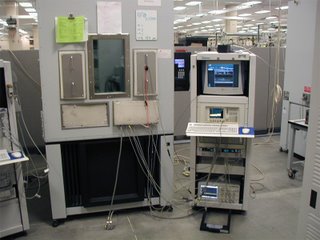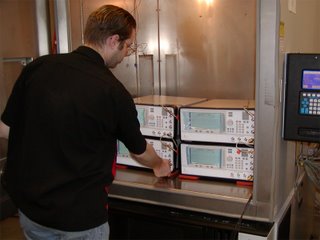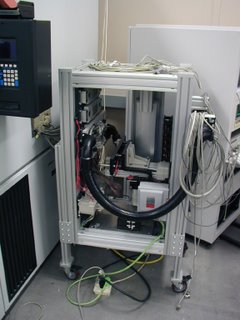Due to the recent tech boom and rapid rise of dot com companies orders for all kinds of our electronic test and measurement instruments have gone through the roof. This past year we've hired in thousands of new production workers, including many technicians and engineers to meet this demand. Simultaneously, our overseas operations have also grown exponentially. While this has been great news for our stock shareholders and for our employees it hasn't turned out to be very positive for our customers. Orders dramatically increased, and so did the time it took for a customer to receive their shipments. It has become entirely out of control. Instead of getting their goods in a matter of a few weeks it now takes an average of a few months minimum. Also as orders have flooded in, the overall quality and reliability of our test gear has significantly decreased. A number of factors have contributed to this situation.
1) When you hire massive amounts of new people it takes a considerable amount of effort from the existing staff to properly instruct and train rookie employees, not to mention it consumes most of the veterans' available time. Generally we haven't been given enough time to train new hires properly which means mistakes in workmanship spike up.
2) New employees with no previous experience in electronics (or in any production work for that matter) were placed into critical job positions on instrument lines. This was a direct mandate from upper level managers based upon their concept that "Anybody can do these jobs." Clearly that isn't the case and never has been here.
3) Our strategy in the marketplace has hinged upon having so called new products available for purchase before our competitors are able to launch a comparable instrument. To make that a reality management has put a tremendous amount of pressure on our R&D teams to design and release new product platforms with totally unrealistic project completion goals.
In order to please their bosses the R&D guys have cut just about every corner imaginable to shave months off product development schedules. This has allowed critical design flaws to appear in our latest and greatest instruments after customers have operated them for just a few weeks in some cases. Customer dissatisfaction with this company is currently at an all-time high. Our warranty service centers are buried in repair work. Let's not forget that warranty service costs money. That's money thrown away because we have to eat the cost on fixing those failures.
Quality inspectors here used to be employees who were expert instrument assemblers on each product line. After years of working your way up from job to job on a specific product you would finally move to MI/EI or what is more commonly known as "Button Up." Button Up is the last stop on an instrument line before finished boxes are sent to Shipping. Operators in Button Up were some of our most experienced people. They could identify any irregularity or defect easily and send the unit back for rework or repair. Since most of those jobs over the past year or so have been populated with green, inexperienced employees all kinds of retarded shit has made it out the door.
Any fucking moron with a modicum of common sense in their skull would know you don't take someone off the street that has never worked with precision electronics before and turn them loose screening finished instruments for defects. They don't know what to look for. Even with a robust training effort there is no real familiarity or experience with the products. So, blatantly stupid workmanship defects continue to make it into customer's hands. Customers have opened up malfunctioning instruments to discover hardware rolling around loose inside shorting out circuitry, damaged cables and wiring, broken components, missing parts, and even food scraps.
As I mentioned before, Japanese customers are the toughest to please compared to the rest of our worldwide customer base. Those guys nitpick and complain about everything no matter how petty, insignificant, or abstract their grievances seem to us. For example if there is a single speck of dust trapped in an instrument's front panel display glass a Japanese customer will reject their order and try to send it back. If the calibration date doesn't match the date we actually printed the certificate paperwork, they bitch about it. Doesn't matter if their instrument has a serious electrical failure or a minor cosmetic defect like a nick in the outer cover paint. It's all unacceptable workmanship in their view.
I have to admit though, many of their complaints are valid.
The latest goofball plan someone has come up with here is to create a new department and staff it with employees that will pretend to be Japanese customers. Each box that ships off a product line will go to a new inspection area called Customer Simulation, or Customer Sim. Once the people in Customer Sim have an instrument they will go over everything in fine detail looking for discrepancies in paperwork, missing items, cosmetic damage, electrical failures, and other random problems. If they find anything suspect that box must go back to the product line for rework. If everything is okay it will move on to Shipping. Ironically, if expert assemblers had been left in place at Button Up to inspect products and screen for defects Customer Sim would likely not be necessary.
Seems to me this is another example of bad managers forcing themselves to waste more money because they consistently make foolish business decisions.





















